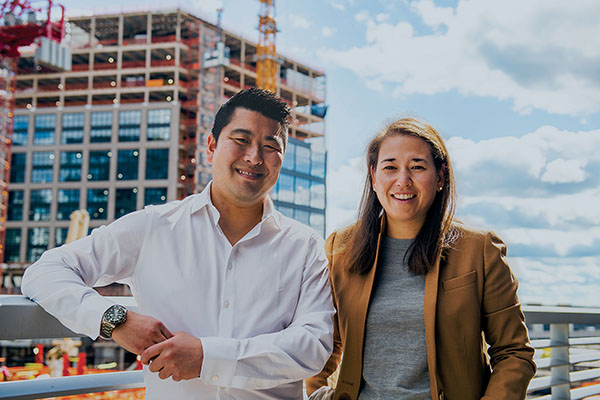Championing Asian-Owned Businesses
Asian Business Empowerment Council
TBF News Fall 2022
Chelsea Curtis began her entrepreneurship as an independent contractor in software implementation services in 2016, specializing in the online software Salesforce. Eventually she had so many clients that it made sense to expand.
“It was a challenge to launch a business in a field where most people don’t look like me,” she says. “I’m unique in the technology world and even in the world of Salesforce implementation.” Gender and race were top of mind when she was starting the company. “Though I’ve never felt overt discrimination in my professional career, I have definitely experienced prejudice in Boston. Those instances are a constant reminder that as an Asian woman, I am made aware of my race and gender in a way that not all people might have to think about.”
Curtis is an enthusiastic participant in the Asian Business Empowerment Council: “The webinars have been fantastic and incredibly impactful—and it’s wonderful to meet other business owners and learn from them and network with them.”
Another participant, Thao Lam, primarily works with athletes and those with chronic muscular pain through her business Push Muscular Restoration in North Chelmsford. “One of the hardest things to overcome is the stereotype of an Asian woman masseuse,” she explains. “Mine wasn’t the first massage business in town, but because I’m an Asian female, I had to go to the town’s Zoning Board of Appeals. It didn’t matter what I’d studied or what my skills were. Because I was an Asian female, I had so many more obstacles to face.”
“The wide range of education, language skills and income levels within the AAPI community and the hurdles to business ownership, growth and sustainability for Asian entrepreneurs are extremely high,” says ABEC Director Qingjian (Q.J.) Shi.
Launched in 2022, the Asian Business Empowerment Council (ABEC) is being seeded and incubated by the Asian Community Fund at the Boston Foundation.ABEC aims to support Greater Boston’s Asian American businesses, particularly immigrant-owned businesses, to overcome historic inequities in access to capital and public contracting opportunities—and to increase opportunities for economic growth and success. It serves as a platform to strengthen economic power within the Asian American business community, by serving as an organizing force and central hub for entrepreneurs, business owners, advocates and service providers.



